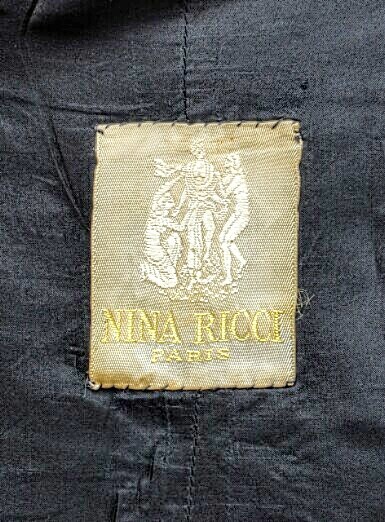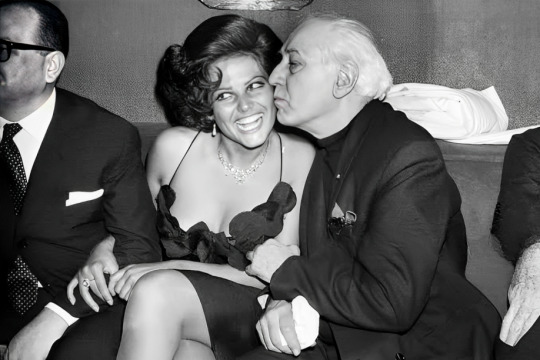#torino magazine
Explore tagged Tumblr posts
Text
Topolino #3620 Torino Comics variant cover by Paolo Mottura.

What a beautiful homage to the city of Turin!!!
#i dare italians to find all the references#some are blatant others are a bit tricky#i'll probably make another post on them#paolo mottura#turin#cover art#torino comics#torino#topolino magazine#mickey mouse#variant cover
13 notes
·
View notes
Text
Podcasting “Capitalists Hate Capitalism”

I'm touring my new, nationally bestselling novel The Bezzle! Catch me in Torino (Apr 21) Marin County (Apr 27), Winnipeg (May 2), Calgary (May 3), Vancouver (May 4), and beyond!

This week on my podcast, I read "Capitalists Hate Capitalism," my latest column for Locus Magazine:
https://locusmag.com/2024/03/cory-doctorow-capitalists-hate-capitalism/
What do I mean by "capitalists hate capitalism?" It all comes down to the difference between "profits" and "rents." A capitalist takes capital (money, or the things you can buy with it) and combines it with employees' labor, and generates profits (the capitalist's share) and wages (the workers' share).
Rents, meanwhile, come from owning an asset that capitalists need to generate profits. For example, a landlord who rents a storefront to a coffee shop extracts rent from the capitalist who owns the coffee shop. Meanwhile, the capitalist who owns the cafe extracts profits from the baristas' labor.
Capitalists' founding philosophers like Adam Smith hated rents. Worse: rents were the most important source of income at the time of capitalism's founding. Feudal lords owned great swathes of land, and there were armies of serfs who were bound to that land – it was illegal for them to leave it. The serfs owed rent to lords, and so they worked the land in order grow crops and raise livestock that they handed over the to lord as rent for the land they weren't allowed to leave.
Capitalists, meanwhile, wanted to turn that land into grazing territory for sheep as a source of wool for the "dark, Satanic mills" of the industrial revolution. They wanted the serfs to be kicked off their land so that they would become "free labor" that could be hired to work in those factories.
For the founders of capitalism, a "free market" wasn't free from regulation, it was free from rents, and "free labor" came from workers who were free to leave the estates where they were born – but also free to starve unless they took a job with the capitalists.
For capitalism's philosophers, free markets and free labor weren't just a source of profits, they were also a source of virtue. Capitalists – unlike lords – had to worry about competition from one another. They had to make better goods at lower prices, lest their customers take their business elsewhere; and they had to offer higher pay and better conditions, lest their "free labor" take a job elsewhere.
This means that capitalists are haunted by the fear of losing everything, and that fear acts as a goad, driving them to find ways to make everything better for everyone: better, cheaper products that benefit shoppers; and better-paid, safer jobs that benefit workers. For Smith, capitalism is alchemy, a philosopher's stone that transforms the base metal of greed into the gold of public spiritedness.
By contrast, rentiers are insulated from competition. Their workers are bound to the land, and must toil to pay the rent no matter whether they are treated well or abused. The rent rolls in reliably, without the lord having to invest in new, better ways to bring in the harvest. It's a good life (for the lord).
Think of that coffee-shop again: if a better cafe opens across the street, the owner can lose it all, as their customers and workers switch allegiance. But for the landlord, the failure of his capitalist tenant is a feature, not a bug. Once the cafe goes bust, the landlord gets a newly vacant storefront on the same block as the hot new coffee shop that can be rented out at even higher rates to another capitalist who tries his luck.
The industrial revolution wasn't just the triumph of automation over craft processes, nor the triumph of factory owners over weavers. It was also the triumph of profits over rents. The transformation of hereditary estates worked by serfs into part of the supply chain for textile mills was attended by – and contributed to – the political ascendancy of capitalists over rentiers.
Now, obviously, capitalism didn't end rents – just as feudalism didn't require the total absence of profits. Under feudalism, capitalists still extracted profits from capital and labor; and under capitalism, rentiers still extracted rents from assets that capitalists and workers paid them to use.
The difference comes in the way that conflicts between profits and rents were resolved. Feudalism is a system where rents triumph over profits, and capitalism is a system where profits triumph over rents.
It's conflict that tells you what really matters. You love your family, but they drive you crazy. If you side with your family over your friends – even when your friends might be right and your family's probably wrong – then you value your family more than your friends. That doesn't mean you don't value your friends – it means that you value them less than your family.
Conflict is a reliable way to know whether or not you're a leftist. As Steven Brust says, the way to distinguish a leftist is to ask "What's more important, human rights, or property rights?" If you answer "Property rights are human right," you're not a leftist. Leftists don't necessarily oppose all property rights – they just think they're less important than human rights.
Think of conflicts between property rights and human rights: the grocer who deliberately renders leftover food inedible before putting it in the dumpster to ensure that hungry people can't eat it, or the landlord who keeps an apartment empty while a homeless person freezes to death on its doorstep. You don't have to say "No one can own food or a home" to say, "in these cases, property rights are interfering with human rights, so they should be overridden." For leftists property rights can be a means to human rights (like revolutionary land reformers who give peasants title to the lands they work), but where property rights interfere with human rights, they are set aside.
In his 2023 book Technofeudalism, Yanis Varoufakis claims that capitalism has given way to a new feudalism – that capitalism was a transitional phase between feudalism…and feudalism:
https://pluralistic.net/2023/09/28/cloudalists/#cloud-capital
Varoufakis's point isn't that capitalists have gone extinct. Rather, it's that today, conflicts between capital and assets – between rents and profits – reliably end with a victory of rent over profit.
Think of Amazon: the "everything store" appears to be a vast bazaar, a flea-market whose stalls are all operated by independent capitalists who decide what to sell, how to price it, and then compete to tempt shoppers. In reality, though, the whole system is owned by a single feudalist, who extracts 51% from every dollar those merchants take in, and decides who can sell, and what they can sell, and at what price, and whether anyone can even see it:
https://pluralistic.net/2024/03/01/managerial-discretion/#junk-fees
Or consider the patent trolls of the Eastern District of Texas. These "companies" are invisible and produce nothing. They consist solely of a serviced mailbox in a dusty, uninhabited office-building, and an overbroad patent (say, a patent on "tapping on a screen with your finger") issued by the US Patent and Trademark Office. These companies extract hundreds of millions of dollars from Apple, Google, Samsung for violating these patents. In other words, the government steps in and takes vast profits generated through productive activity by companies that make phones, and turns that money over as rent paid to unproductive companies whose sole "product" is lawsuits. It's the triumph of rent over profit.
Capitalists hate capitalism. All capitalists would rather extract rents than profits, because rents are insulated from competition. The merchants who sell on Jeff Bezos's Amazon (or open a cafe in a landlord's storefront, or license a foolish smartphone patent) bear all the risk. The landlords – of Amazon, the storefront, or the patent – get paid whether or not that risk pays off.
This is why Google, Apple and Samsung also have vast digital estates that they rent out to capitalists – everything from app stores to patent portfolios. They would much rather be in the business of renting things out to capitalists than competing with capitalists.
Hence that famous Adam Smith quote: "People of the same trade seldom meet together, even for merriment and diversion, but the conversation ends in a conspiracy against the public, or in some contrivance to raise prices." This is literally what Google and Meta do:
https://en.wikipedia.org/wiki/Jedi_Blue
And it's what Apple and Google do:
https://www.theverge.com/2023/10/27/23934961/google-antitrust-trial-defaults-search-deal-26-3-billion
Why compete with one another when you can collude, like feudal lords with adjacent estates who trust one another to return any serf they catch trying to sneak away in the dead of night?
Because of course, it's not just "free markets" that have been captured by rents ("Competition is for losers" -P. Thiel) – it's also "free labor." For years, the largest tech and entertainment companies in America illegally colluded on a "no poach" agreement not to hire one-anothers' employees:
https://techcrunch.com/2015/09/03/apple-google-other-silicon-valley-tech-giants-ordered-to-pay-415m-in-no-poaching-suit/
These companies were bitter competitors – as were these sectors. Even as Big Content was lobbying for farcical copyright law expansions and vowing to capture Big Tech, all these companies on both sides were able to set aside their differences and collude to bind their free workers to their estates and end the "wasteful competition" to secure their labor.
Of course, this is even more pronounced at the bottom of the labor market, where noncompete "agreements" are the norm. The median American worker bound by a noncompete is a fast-food worker whose employer can wield the power of the state to prevent that worker from leaving behind the Wendy's cash-register to make $0.25/hour more at the McDonald's fry trap across the street:
https://pluralistic.net/2022/02/02/its-the-economy-stupid/#neofeudal
Employers defend this as necessary to secure their investment in training their workers and to ensure the integrity of their trade secrets. But why should their investments be protected? Capitalism is about risk, and the fear that accompanies risk – fear that drives capitalists to innovate, which creates the public benefit that is the moral justification for capitalism.
Capitalists hate capitalism. They don't want free labor – they want labor bound to the land. Capitalists benefit from free labor: if you have a better company, you can tempt away the best workers and cause your inferior rival to fail. But feudalists benefit from un-free labor, from tricks like "bondage fees" that force workers to pay in order to quit their jobs:
https://pluralistic.net/2023/04/21/bondage-fees/#doorman-building
Companies like Petsmart use "training repayment agreement provisions" (TRAPs) to keep low-waged workers from leaving for better employers. Petsmart says it costs $5,500 to train a pet-groomer, and if that worker is fired, laid off, or quits less than two years, they have to pay that amount to Petsmart:
https://pluralistic.net/2022/08/04/its-a-trap/#a-little-on-the-nose
Now, Petsmart is full of shit here. The "four-week training course" Petsmart claims is worth $5,500 actually only lasts for three weeks. What's more, the "training" consists of sweeping the floor and doing other low-level chores for three weeks, without pay.
But even if Petsmart were to give $5,500 worth of training to every pet-groomer, this would still be bullshit. Why should the worker bear the risk of Petsmart making a bad investment in their training? Under capitalism, risks justify rewards. Petsmart's argument for charging $50 to groom your dog and paying the groomer $15 for the job is that they took $35 worth of risk. But some of that risk is being borne by the worker – they're the ones footing the bill for the training.
For Petsmart – as for all feudalists – a worker (with all the attendant risks) can be turned into an asset, something that isn't subject to competition. Petsmart doesn't have to retain workers through superior pay and conditions – they can use the state's contract-enforcement mechanism instead.
Capitalists hate capitalism, but they love feudalism. Sure, they dress this up by claiming that governmental de-risking spurs investment: "Who would pay to train a pet-groomer if that worker could walk out the next day and shave dogs for some competing shop?"
But this is obvious nonsense. Think of Silicon Valley: high tech is the most "IP-intensive" of all industries, the sector that has had to compete most fiercely for skilled labor. And yet, Silicon Valley is in California, where noncompetes are illegal. Every single successful Silicon Valley company has thrived in an environment in which their skilled workers can walk out the door at any time and take a job with a rival company.
There's no indication that the risk of free labor prevents investment. Think of AI, the biggest investment bubble in human history. All the major AI companies are in jurisdictions where noncompetes are illegal. Anthropic – OpenAI's most serious competitor – was founded by a sister/brother team who quit senior roles at OpenAI and founded a direct competitor. No one can claim with a straight face that OpenAI is now unable to raise capital on favorable terms.
What's more, when OpenAI founder Sam Altman was forced out by his board, Microsoft offered to hire him – and 700 other OpenAI personnel – to found an OpenAI competitor. When Altman returned to the company, Microsoft invested more money in OpenAI, despite their intimate understanding that anyone could hire away the company's founder and all of its top technical staff at any time.
The idea that the departure of the Burger King trade secrets locked up in its workers' heads constitute more of a risk to the ability to operate a hamburger restaurant than the departure of the entire technical staff of OpenAI is obvious nonsense. Noncompetes aren't a way to make it possible to run a business – they're a way to make it easy to run a business, by eliminating competition and pushing the risk onto employees.
Because capitalists hate capitalism. And who can blame them? Who wouldn't prefer a life with less risk to one where you have to constantly look over your shoulder for competitors who've found a way to make a superior offer to your customers and workers?
This is why businesses are so excited about securing "IP" – that is, a government-backed right to control your workers, customers, competitors or critics:
https://locusmag.com/2020/09/cory-doctorow-ip/
The argument for every IP right expansion is the same: "Who would invest in creating something new without the assurance that someone else wouldn’t copy and improve on it and put them out of business?"
That was the argument raised five years ago, during the (mercifully brief) mania for genre writers seeking trademarks on common tropes. There was the romance writer who got a trademark on the word "cocky" in book titles:
https://www.theverge.com/2018/7/16/17566276/cockygate-amazon-kindle-unlimited-algorithm-self-published-romance-novel-cabal
And the fantasy writer who wanted a trademark on "dragon slayer" in fantasy novel titles:
https://memex.craphound.com/2018/06/14/son-of-cocky-a-writer-is-trying-to-trademark-dragon-slayer-for-fantasy-novels/
Who subsequently sought a trademark on any book cover featuring a person holding a weapon:
https://memex.craphound.com/2018/07/19/trademark-troll-who-claims-to-own-dragon-slayer-now-wants-exclusive-rights-to-book-covers-where-someone-is-holding-a-weapon/
For these would-be rentiers, the logic was the same: "Why would I write a book about a dragon-slayer if I could lose readers to someone else who writes a book about dragon-slayers?"
In these cases, the USPTO denied or rescinded its trademarks. Profits triumphed over rents. But increasingly, rents are triumphing over profits, and rent-extraction is celebrated as "smart business," while profits are for suckers, only slightly preferable to "wages" (the worst way to get paid under both capitalism and feudalism).
That's what's behind all the talk about "passive income" – that's just a euphemism for "rent." It's what Douglas Rushkoff is referring to in Survival of the Richest when he talks about the wealthy wanting to "go meta":
https://pluralistic.net/2022/09/13/collapse-porn/#collapse-porn
Don't drive a cab – go meta and buy a medallion. Don't buy a medallion, go meta and found Uber. Don't found Uber, go meta and invest in Uber. Don't invest in Uber, go meta and buy options on Uber stock. Don't buy Uber stock options, go meta and buy derivatives of options on Uber stock.
"Going meta" means distancing yourself from capitalism – from income derived from profits, from competition, from risk – and cozying up to feudalism.
Capitalists have always hated capitalism. The owners of the dark Satanic mills wanted peasants turned off the land and converted into "free labor" – but they also kidnapped Napoleonic war-orphans and indentured them to ten-year terms of service, which was all you could get out of a child's body before it was ruined for further work:
https://pluralistic.net/2023/09/26/enochs-hammer/#thats-fronkonsteen
When Varoufakis says we've entered a new feudal age, he doesn't mean that we've abolished capitalism. He means that – for the first time in centuries – when rents go to war against profits – the rents almost always emerge victorious.
Here's the podcast episode:
https://craphound.com/news/2024/04/14/capitalists-hate-capitalism/
Here's a direct link to the MP3 (hosting courtesy of the Internet Archive; they'll host your stuff for free, forever):
https://archive.org/download/Cory_Doctorow_Podcast_465/Cory_Doctorow_Podcast_465_-_Capitalists_Hate_Capitalism.mp3
And here's the RSS feed for my podcast:
http://feeds.feedburner.com/doctorow_podcast

If you'd like an essay-formatted version of this post to read or share, here's a link to it on pluralistic.net, my surveillance-free, ad-free, tracker-free blog:
https://pluralistic.net/2024/04/18/in-extremis-veritas/#the-winnah
1K notes
·
View notes
Text
Claudia Cardinale's iconic little black dress:

��� It was purchased and shown to the public at the "Museo Nazionale del Cinema presso la Mole Antonelliana di Torino" in 2019, Italy.

/Dress designed by Nina Ricci, Haute Couture, circa 1963, Cocktail dress adorned with silk petals/

▪ Estimated at: 3,500 - 4,500 EUR by Sotheby's.

▪ Claudia Cardinale wore this dress in the final scene of the film "Il Magnifico Cornuto", by Antonio Pietrangeli released in 1964.

▪ As well as on the cover of the Italian magazine ABC from December 1964.

▪ She also wore this dress in December 1964 in Munich for the press conference for the film "Circus World" (Video below⬇) and then, on February 3, 1965 in Paris, for the tenth screening of "Le Cocu Magnifique" (French title), during which was photographed with Abel Gance.

🔼🔽 Antonio Pietrangeli, Claudia Cardinale and Abel on March 2, 1965.

▪ And obviously the photo session done by Claudia's great friend couldn't be missed; the great photographer Angelo Frontoni in 1964:





/Claudia poses in her room in her house /



In December 1964:
~ World famous Italian actress Claudia Cardinale spoke about media and fan interest, her career and her private life during her visit to Munich. ~ German press. (If anyone knows German, please send me a message about what the video says, it would be greatly appreciated 😊) Credits: 📷 Claudia's LBD by Sotheby's exhibition. 📷 Photos by Angelo Frontoni, 1964. 🎥 BR Retro Upper Bavaria.
#claudia cardinale#Il magnifico cornuto#le cocu magnifique#antonio pietrangeli#lbd#iconic dress#60s#1964#italian movies#abc magazine#press#gif#black and white#nina ricci#sotheby's#angelo frontoni#video#vintage#actress#claudia cardinale clothes
84 notes
·
View notes
Text




'INTERLUDIO LIV' My photos this time: I thought it might be of interest to share some 'behind-the-scenes', so to speak, images - specifically, some of the museum cabinets and views I captured while preparing the article 'Roman Bronzes' [ @Antiqvvs Magazine ]. These images are from:
🏛️ Pics 1-3 Museo Archeologico al Teatro Romano, Verona | MATR https://museoarcheologico.comune.verona.it
🏛️ Pic 4 (a., b.) A. Musei Reali Torino, Turin | MRT https://museireali.beniculturali.it/en/archaeological-museum B. Museo Archeologico Nazionale di Mantova, Mantua | MANM https://mantovaducale.beniculturali.it/it/museo-archeologico
Michael Svetbird @michael-svetbird phs©msp | 2023-2024 6500X4300 600 [I.-IV.]
#interludio#verona#turin#torino#mantua#mantova#archaeological museum#museums#archaeology#art history#museum collection#roman#bronzes#roman bronzes#collection#illustration#historical#study#research#publication#ancient#classical#antiquity#mythology#museology#heritage#ancient sculpture#antiquities#photojournalism#michaelsvetbird
4 notes
·
View notes
Text
but though i may never be free / fuck you and your money
words: 2739 (AO3)
Summary:
it's six am. im not doing a serious summary.
gran torino gets fucking vaulted 👍
(no i didnt update the summary after posting. it's afohiko fyi)
"Sora, you know I- "
"Don't you 'Sora' me, you son of a bitch!"
Sorahiko throws a nearby vase at Hisashi's face at full force; the man has the good sense to dodge, and it shatters against the wall. Sorahiko doesn't even know why the hell there's a vase in here, considering that Hisashi is not the type of man to bring him flowers, and Sorahiko is not the type of man to display them.
It might've just been another display of wealth. Flexing every single advantage that he has over Sorahiko, money and power and everything else, that's always been Hisashi's game. Though, it's a moot point now, considering his current position, but he's always thought Hisashi was touched in the head.
"Please. Is that any way to speak to your husband?"
"You're not my husband if I don't have a ring." Sorahiko wiggles his bare fingers at Hisashi, showing that he is, indeed, without a ring. Hisashi pouts at the display in a way he would have once begrudgingly called cute, and now only comes off as mocking.
"Why would you get rid of it? You picked it out yourself, if I recall correctly."
Sorahiko takes a deep, fortifying breath, before biting out, "I picked it in a jewelry shop that wasn't in a fucking bank vault."
He glares at Hisashi from where they are both standing in the aforementioned bank vault. It's got a kitchen, running water, electricity, everything a home needs besides a connection to the outside world- or any kind of exit. Hisashi teleports in, and Sorahiko suspects that they're underground, surrounded on all sides by dirt. There are magazines full of classic cars, a side room that looks to be an empty showroom-slash-garage, and that's the second-most insulting thing here: the fact that Hisashi clearly remembers his interests and hobbies, and is most likely hoping to leverage them in exchange for him becoming complicit in this.
He can practically hear it now: "If you'd like, I can see about acquiring one of those Ferraris you were looking at, getting it down here for you to work on and modify to your heart's content. How about we talk about it over a meal, hm?"
Sorahiko could never be complicit, though. He would never accept that meal, or that car, or whatever peace offering Hisashi attempts next, and that is because of the one thing more insulting than the cars: the skylight.
It taunts him. Right in the center of the ceiling, a massive skylight that lets in sunlight and helps keep himself oriented in time. It's probably on ground level, a window in the middle of the grass for any outsiders looking in. He supposes that the damn thing is there because Hisashi knows that if Sorahiko was allowed to fully divorce himself from the natural passage of time, his circadian rhythm would readjust itself to achieve his natural state of "weirdly nocturnal-ish." That would, of course, be bad for Hisashi, because then Sorahiko wouldn't be quite so goddamned tired all the time and he could properly plan an escape.
Or, maybe the skylight wasn't supposed to keep him handicapped. Maybe it was meant to be a taunt. Maybe it was meant to say the same thing as the showroom: if you cooperate, I'll give you back what I stole from you.
Maybe, maybe, maybe. Speculation gets him nowhere, and neither does contemplating the accursed skylight. It's not like he can jump up there anymore.
With Pinball, getting out would be easy. All that he would have to do is start bouncing around the place and get enough momentum going to go out the skylight, and boom. Done. However, he doesn't have the luxury of quirk use anymore.
"Sora, it was- "
"Do. Not. 'Sora.' Me."
"Sorahiko- "
"Don't get so familiar."
"What do you want me to call you, then? Shigaraki? That is your name now, after all."
Sorahiko glances around for another vase; finding none, he hurls the now-empty end table at Hisashi. It, too, shatters against the wall, this time falling into splinters instead of ceramic shards.
"You stole my quirk. You stole my freedom. Now you're insisting on stealing my fucking name? What the hell else do you stand to gain, here? I've got nothing else for you to have, so just- just kill me already! Is that what you want? I don't care! Just get it over with and take my fucking life before you find another scrap of dignity to steal from me instead!"
He's breathing a little heavily after his impromptu rant, but he's not taking any of it back, just staring at Hisashi, waiting to see how he'll respond. He knows that Hisashi isn't angling to kill him, rather, keep him here forever like some kind of collectible, but he won't stand for that. He will not sit here quietly when he can scream and rage and say things that he knows will get under Hisashi's skin.
Hisashi, for his part, steps forward right on cue, a hand outstretched as though in an attempt at comfort. Sorahiko takes an equal step back, and snarls, "Don't touch me." The disgust in his voice isn't exaggerated in any way, unlike the false accusations. He wants nothing to do with his so-called "husband" anymore, no matter how well the bastard tries to plead his case.
The bastard in question lowers his hand and lets it hang limply at his side for a moment, before suddenly seeming to remember that he can't let himself look pathetic in front of a prisoner and faux-casually readjusting his cufflinks instead. Hisashi doesn't do that himself, Sorahiko knows he's got a quirk that he specifically employs so that he doesn't have to readjust his clothes, so it's even more blatantly obvious that he's just doing it so that he has something to do with his hands.
"I..." Hisashi hesitates, for a calculated moment, because Sorahiko will never believe that he was actually rendered speechless. "I want to keep you safe, here. You know how dangerous it is, out there, I don't want to risk- "
"Cut the shit," Sorahiko interrupts, "You and I both know goddamn well that taking my quirk and then claiming that it's 'too dangerous' out there is horseshit. You're just trying to keep me here, trapped like a pet for you to come and visit as you please."
Sorahiko stomps forward, maintaining steady eye contact with Hisashi. "Well guess what, sweetheart. I'm not your fucking pet, I'm not a fucking invalid, I was your fucking partner. I managed so much of your bullshit, I took care of so many attempted assassinations and headed off so many attempted 'quirk-erasing' drugs before they even started, all so you would keep your precious throne as the King of the Underground. All so you wouldn't have to worry about the minutiae of it all, all so you could look ahead at the 'future' you love so much." He's up in Hisashi's face at this point, close enough that their noses are almost touching. His voice started out at nearly a shout, but has since lowered to a dangerous murmur, the kind that he picked up from Hisashi himself, the kind that makes whoever hears it lean in and listen. Neither of them have even so much as blinked.
He lifts a hand to cup the side of Hisashi's face, in a mockery of the intimacy that he used to willingly share. "You can keep your future. You can keep your throne. You can keep whatever it is I gave you back when I was stupid enough to think you loved me as anything more than a plaything, because that's all you'll ever get from me. You'll have to pry anything else from my cold, dead hands." He pulls his hand away, and moves to back up, but he's stopped by a force gripping at the back of his neck.
Hisashi is holding Sorahiko in place by the back of his neck, and dons that smug little smirk of his while he presses his forehead to Sorahiko's. He looks like the cat that caught the canary, and Sorahiko feels like the rat that just stepped into the trap.
"You don't mean that." It's almost a whisper, Hisashi's low voice given just barely enough volume that Sorahiko's pretty sure he can only hear it because of how close they are right now. He says it with a lilting amusement, like it's merely a tease.
"I think you'll find that I very much do." He makes no move to escape. That would be admitting defeat, that would be inviting Hisashi to show off just how much stronger he is than Sorahiko, thereby confirming just how trapped he really is. He'll pretend that he's got a little power here, just for a moment.
Hisashi huffs quietly in amusement, not even enough force in it to really call it a laugh. He leans forward just slightly, just enough to close the distance between them, and murmurs, "Do you?" against Sorahiko's lips before finally kissing him.
Sorahiko's immediate instinct is to respond in kind, but he resists the urge. Instead, he shoves at Hisashi's chest to try to push him away, but of course he doesn't give. Hisashi pulls away, anyway, and levels him with a dispassionate stare. Suddenly, there's the horrible sensation of something crawling on the back of his neck, and a glowing coming from where he knows Hisashi's hand still is, and he knows.
There's a strange, pulsing kind of pain that feels its way out from that point on the back of his neck where he knows the hole in Hisashi's hand is. It's accompanied by a cold crawling, like icy insects burrowing their way under his skin, and all that Sorahiko can think is "There's no way he's giving me the right quirk back."
He discovers that he's right soon after, when his heart stutters in his chest and his lungs start having trouble pulling in air. Hisashi lets go and backs away a few steps, leaving Sorahiko to pathetically brace himself against the nearest wall as his knees start going weak and spots begin to appear in front of his eyes. He hadn't felt anything like this after Pinball had been stolen from him, no way that he would've even known if he hadn't seen it happen with his own eyes, so he'd bet that whatever this is, it must be some kind of mutation or transformation quirk, something that's fucking with his circulatory and respiratory systems. Could even be a particularly involved emitter quirk, but real speculation is escaping him when all that he can really focus on is Hisashi leaning down mockingly, grabbing his chin to force him to keep looking into Hisashi's eyes as he sits flat on his ass and struggles to fucking breathe.
"What if I gave you something in return, hmm? I'll be keeping Pinball for now, so I'll always have a part of you with me, but... you did manage to survive this long outside, by my side. There are dangers out there and their weapons are only getting stronger, that quirk is multiplying its power stores exponentially with that Seventh... but I do love you, dear. I want to trust you, truly I do, so I'll need you to adapt. I'll need you to pass this little test of mine, then we'll see about bringing you out of here. If you prove yourself adept enough, that is."
So that's what all of this is about. Hisashi's growing paranoid about the power of that One for All, and he's feeling the need to keep Sorahiko locked away for fear of those heroes finding him and arresting him- though, more likely, they'd kill him. Hisashi knows that. Sorahiko won't pretend to sympathize, but he kind of understands. Still, that doesn't keep him from growling with as much force as he can muster, "The hell did you do to me?"
Hisashi chuckles, mostly to himself, before he answers. "I gave you a quirk, of course. It doesn't match yours, not quite, so it won't be easy for you to acclimate to. There will likely be side effects, long-term effects, inconveniences in every way, but if you can overcome them, if you can come back with that same old fighting spirit you've always had, I'll make sure it doesn't take its toll. I need you to be more than your quirk, Sora. I need you to be better than that." Hisashi's almost pleading, now, and Sorahiko would hit him if he could get enough oxygen in his useless lungs to muster the strength for it.
"The name of the damn thing would be nice."
"It's called Air Jet. It's going to restructure your circulatory system and your respiratory system, mostly in your legs. It allows the user to push air out through holes in the bottoms of their feet, so I'll give you a few days to let that happen. I would stay with you, but you've made it abundantly clear that you don't want me here. Once the physical changes have finished, I'll be waiting. I'll be waiting for your perseverance, Sora, because we both want you out of this vault. You're not sickly like my brother was, but the world is changing too quickly, powers are growing too much for me to just... leave you to remain outside, not without even seeing if you can hold your own. Adapting to a quirk like this was difficult even for me, someone whose quirk was designed for it, so you overcoming it will ease my fears. It will assure me that you truly don't need to be protected like this, and that's all I really want."
Sorahiko nearly spits in his face. Hisashi's maddened rambles are insulting to listen to, at best, and the only reason he doesn't start protesting this in every way that he can is the barely-concealed bags under Hisashi's eyes that he's just now noticing. Hisashi is... clearly unwell. He'll just let that rant slide, for now.
Instead of spitting, like he desperately wants to, Sorahiko begrudgingly asks, "Carry me to bed before you go?" He doesn't think he's standing up again for a while in this state, and it'll be one last gesture of affection before Sorahiko permanently rejects him out of hand.
Hisashi smiles softly, and picks him up bridal-style, the same as he did on their wedding day. While he carries him to the bed, Sorahiko looks up at the skylight and plans.
Air Jet isn't Pinball. It never will be Pinball. There will be side effects, it'll take a toll on his body, but he honestly doubts that he'll ever get that quirk back. As far as he's concerned, it's gone forever, because as much as Hisashi had pretended like that whole rambling rant was honest, it wasn't. Sorahiko knows that he doesn't intend on letting him out of this vault within this lifetime.
Air Jet was given to him because it would physically disable him for a while, so Hisashi's probably banking on that time to wear him down into compliance with the vault. Air Jet is also the perfect quirk for escape, so long as he can master it before Hisashi decides to either switch it out or leave him quirkless entirely.
Hisashi lays him down on the bed, and looks down at him for a moment before swooping down for one more attempt at a kiss. Sorahiko reciprocates this time, but keeps a hand on Hisashi's chest. It's a softer kiss than usual, probably partly because he's already having trouble catching his breath after only a moment, and because, at least on his part, it feels like a goodbye. It is a goodbye.
When Hisashi breaks away and leaves, it feels... final. A good kind of final, maybe. Sorahiko knows he'll miss the whole 'criminal' thing, because there's no way he'll be able to return to the underground after this, but maybe the straight and narrow won't be so bad. He won't be risking another bank vault, at least, and most people with decent heads on their shoulders won't try and cross him even after he's out.
He stares up at the skylight, and watches the color fade to a burnt orange of sunset. In a few days, he'll be out there, he promises himself. He'll be out there with a new life.
#mha#afohiko#mha fic#my writing#but though i may never be free / fuck you and your money#but though i may never be free / fuck you and your money fic
3 notes
·
View notes
Text
LADY-J Winter Edition parte da Madonna di Campiglio. L'8/3 allo Chalet Spinale c'è Georgia Mos

L'energia della musica incontra la magia delle montagne. Ecco cosa succede nella prima tappa di LADY-J Winter Edition, che parte l'8 marzo, non per caso. E' infatti il Women's Day, una giornata tutta al femminile, quando Georgia Mos farà scatenare con la sua musica lo Chalet Spinale di Madonna di Campiglio (TN). Non è sola, visto che è accompagnata da altre due ragazze capaci di far scatenare ogni pubblico. Paola Peroni con il suo sound, Eleonora Salvi con la sua voce e la sua energia.
Ma chi è Georgia Mos? Ecco come la descrive un recente articolo di Next Gen Magazine: "La sua storia comincia a Sanremo, ma per seguire la musica Georgia Mos ha girato pressoché tutto il mondo. È così che il suo sound si è evoluto, dalla passione per il canto e la chitarra classica quando era una bambina, fino al primo approccio con la Dance durante gli anni a Londra, dove si comincia a concretizzare la sua strada da dj. Poi arriva la partecipazione come prima donna al talent Top dj, e un lungo tour che la porta tra Europa, Cina, India e Nepal. «Dieci anni fa la Dance e l'Elettronica erano molto più avanti all'estero rispetto all'Italia, focalizzata sulla musica pop melodica. Per trovare la mia dimensione sono dovuta partire» ci racconta, arrivando ai suoi ultimi successi: nel 2024 è stata una delle prime dj a suonare allo stadio di Torino, poi giurata per il talent LADY-J e, nello stesso anno, ha pubblicato, la hit Afro House, 'Confetti'...".
LADY-J, il primo contest inclusivo e sostenibile che celebra il talento musicale al femminile, non si ferma. Dopo il successo dell'estate 2024, quando la manifestazione ha coinvolto oltre un milione di persone nei beach club più scatenati d'Italia (250.000 come audience live, oltre 750.000 tra impression social, copertura mediatica e votazioni su su Lady-j.it), invece di aspettare l'estate 2025, già a marzo fa ballare gli Après-ski più iconici delle località montane di riferimento. E non solo: lo scopo dei party invernali è infatti scovare nuovi talenti del mixer al femminile da lanciare durante la nuova edizione Summer 2025.
E' LADY-J Winter Edition, che scalda già i motori per 5 party da non perdere… E non per caso parte l'8 marzo, la Festa della Donna, celebrando il talento femminile in musica. In questa data il tour parte dallo Spinale di Madonna di Campiglio (TN). Il 15 marzo invece il party a Courmayeur è doppio, sia all'Outsider sia allo Shatush. Il 22 marzo LADY-J Winter Edition si sposta a Cervinia, al Rocce Nere. Il 19 ed il 20 aprile gran finale a Livigno, con due appuntamenti. Prima al Centrale, il 19 e poi il 20, al Bivio.
In altre parole, LADY-J Winter Edition è un gran bel modo per aspettare la seconda edizione di LADY-J, prevista per l'estate 2025, quando la manifestazione tornerà a far muovere a tempo tutto il Bel Paese. L'organizzazione di LADY-J Winter Edition è ancora a cura di Match Music, realtà che da decenni spazia tra musica, tv e organizzazione eventi curando ogni dettaglio con cura maniacale.
«Crediamo nella bellezza della musica e ci piace celebrarla coinvolgendo le persone in questo mondo», spiega lo staff di LADY-J, che anche nel nuovo tour invernale sarà di nuovo il palcoscenico perfetto per brand d'eccellenza come Shiseido ed Ergovis, che confermano la loro presenza. I due brand hanno valori comuni: Shiseido crede nel potere della bellezza, per un mondo migliore e con i suoi solari protegge la pelle. Ergovis, invece integratore di vitamine a lento rilascio, potenzia le difese immunitarie e supporta la nostra salute.
Riassumendo, si scrive LADY-J e si legge le DJ ed è il talent pensato per supportare le DJ del futuro, le protagoniste della scena della scena musicale di domani. Nel corso dell'estate 2024, LADY-J, con quattro scatenate tappe tra Napoli, Venezia, Massa, Genova, Riccione ha fatto ballare i beach club d'Italia. Aspettando l'estate 2025, LADY-J Winter Edition tiene alto il ritmo facendo muovere a tempo gli Après-ski di riferimento.
0 notes
Text


Topolino #3572 Turin International Book Fair variant cover by Paolo Mottura dedicated the newest Disney parody "Pippo Holmes" (Goofy Holmes 😄).
#goofy#paolo mottura#cover art#variant cover#topolino magazine#salone del libro di torino#turin international book fair#disney mice#disney parody#sherlock holmes
26 notes
·
View notes
Text
This day in history

I'm touring my new, nationally bestselling novel The Bezzle! Catch me in CHICAGO (Apr 17), Torino (Apr 21) Marin County (Apr 27), Winnipeg (May 2), Calgary (May 3), Vancouver (May 4), and beyond!

#5yrsago The Pinkertons’ plan for climate change: a mercenary army that guards one-percenters as the seas rise https://www.nytimes.com/interactive/2019/04/10/magazine/climate-change-pinkertons.html
#5yrsago Ford CEO: we “overestimated” self-driving cars https://www.engadget.com/2019-04-10-ford-ceo-says-the-company-overestimated-self-driving-cars.html
#5yrsago Talking Radicalized with John Scalzi in the LA Times https://www.latimes.com/books/la-ca-jc-fob-cory-doctorow-interview-radicalized-20190411-story.html
#5yrsago Illinois almost passed a bill that banned devices that record you without your consent — and then Big Tech stepped in https://www.vice.com/en/article/ywyzm5/big-tech-lobbying-gutted-a-bill-that-would-ban-recording-you-without-consent
#1yrago Gig apps trap reverse centaurs in wage-stealing Skinner boxes https://pluralistic.net/2023/04/12/algorithmic-wage-discrimination/#fishers-of-men
6 notes
·
View notes
Text
LADY-J Winter Edition parte da Madonna di Campiglio. L'8/3 allo Chalet Spinale c'è Georgia Mos

L'energia della musica incontra la magia delle montagne. Ecco cosa succede nella prima tappa di LADY-J Winter Edition, che parte l'8 marzo, non per caso. E' infatti il Women's Day, una giornata tutta al femminile, quando Georgia Mos farà scatenare con la sua musica lo Chalet Spinale di Madonna di Campiglio (TN). Non è sola, visto che è accompagnata da altre due ragazze capaci di far scatenare ogni pubblico. Paola Peroni con il suo sound, Eleonora Salvi con la sua voce e la sua energia.
Ma chi è Georgia Mos? Ecco come la descrive un recente articolo di Next Gen Magazine: "La sua storia comincia a Sanremo, ma per seguire la musica Georgia Mos ha girato pressoché tutto il mondo. È così che il suo sound si è evoluto, dalla passione per il canto e la chitarra classica quando era una bambina, fino al primo approccio con la Dance durante gli anni a Londra, dove si comincia a concretizzare la sua strada da dj. Poi arriva la partecipazione come prima donna al talent Top dj, e un lungo tour che la porta tra Europa, Cina, India e Nepal. «Dieci anni fa la Dance e l'Elettronica erano molto più avanti all'estero rispetto all'Italia, focalizzata sulla musica pop melodica. Per trovare la mia dimensione sono dovuta partire» ci racconta, arrivando ai suoi ultimi successi: nel 2024 è stata una delle prime dj a suonare allo stadio di Torino, poi giurata per il talent LADY-J e, nello stesso anno, ha pubblicato, la hit Afro House, 'Confetti'...".
LADY-J, il primo contest inclusivo e sostenibile che celebra il talento musicale al femminile, non si ferma. Dopo il successo dell'estate 2024, quando la manifestazione ha coinvolto oltre un milione di persone nei beach club più scatenati d'Italia (250.000 come audience live, oltre 750.000 tra impression social, copertura mediatica e votazioni su su Lady-j.it), invece di aspettare l'estate 2025, già a marzo fa ballare gli Après-ski più iconici delle località montane di riferimento. E non solo: lo scopo dei party invernali è infatti scovare nuovi talenti del mixer al femminile da lanciare durante la nuova edizione Summer 2025.
E' LADY-J Winter Edition, che scalda già i motori per 5 party da non perdere… E non per caso parte l'8 marzo, la Festa della Donna, celebrando il talento femminile in musica. In questa data il tour parte dallo Spinale di Madonna di Campiglio (TN). Il 15 marzo invece il party a Courmayeur è doppio, sia all'Outsider sia allo Shatush. Il 22 marzo LADY-J Winter Edition si sposta a Cervinia, al Rocce Nere. Il 19 ed il 20 aprile gran finale a Livigno, con due appuntamenti. Prima al Centrale, il 19 e poi il 20, al Bivio.
In altre parole, LADY-J Winter Edition è un gran bel modo per aspettare la seconda edizione di LADY-J, prevista per l'estate 2025, quando la manifestazione tornerà a far muovere a tempo tutto il Bel Paese. L'organizzazione di LADY-J Winter Edition è ancora a cura di Match Music, realtà che da decenni spazia tra musica, tv e organizzazione eventi curando ogni dettaglio con cura maniacale.
«Crediamo nella bellezza della musica e ci piace celebrarla coinvolgendo le persone in questo mondo», spiega lo staff di LADY-J, che anche nel nuovo tour invernale sarà di nuovo il palcoscenico perfetto per brand d'eccellenza come Shiseido ed Ergovis, che confermano la loro presenza. I due brand hanno valori comuni: Shiseido crede nel potere della bellezza, per un mondo migliore e con i suoi solari protegge la pelle. Ergovis, invece integratore di vitamine a lento rilascio, potenzia le difese immunitarie e supporta la nostra salute.
Riassumendo, si scrive LADY-J e si legge le DJ ed è il talent pensato per supportare le DJ del futuro, le protagoniste della scena della scena musicale di domani. Nel corso dell'estate 2024, LADY-J, con quattro scatenate tappe tra Napoli, Venezia, Massa, Genova, Riccione ha fatto ballare i beach club d'Italia. Aspettando l'estate 2025, LADY-J Winter Edition tiene alto il ritmo facendo muovere a tempo gli Après-ski di riferimento.
0 notes
Text
IA quotidIAna: A Torino, un nuovo ciclo di incontri sull’Intelligenza Artificiale al Circolo dei lettori

Un progetto di Università degli Studi di Torino, Fondazione Circolo dei lettori, Società Italiana per l’Etica dell’Intelligenza Artificiale e Magazine Intelligenza Artificiale MagIA
14 ottobre - Sex, lies and AI; IA oltre la vita
28 ottobre - L'IA proietta luci e ombre sulla medicina?; IA e conflitti13 novembre - L’IA influenzerà le elezioni?; La deriva della tech economy | Utopia o distopia?
Ore 18, Circolo dei lettori, Torino
Torino, 26 settembre 2024. La Fondazione Circolo dei lettori, l’Università degli Studi di Torino, la Società Italiana per l’Etica dell’Intelligenza Artificiale e il Magazine Intelligenza Artificiale MagIA presentanoIA quotidIAna, un nuovo ciclo di tre incontri - ognuno su due temi - per riflettere sul modo in cui sempre più l’IA sia pervadendo la realtà di tutti i giorni, che si terrà al Circolo dei lettori di Torino in Sala Grande il 14 e 28 ottobre e il 13 novembre, coinvolgendo professioniste e professionisti di diverse discipline - giornalisti, antropologi, semiologi, informatici, filosofi…
A due anni dall’avvento di ChatGPT, la chatbot basata sull’Intelligenza Artificiale ad apprendimento automatico sviluppata da OpenAI, questo nuovo assistente digitale potenziato, “interfaccia domestica” che rivela solo alcune delle enormi potenzialità dell’Intelligenza Artificiale, è entrato stabilmente nelle nostre vite. Ma l’IA ha il potere di influenzare o addirittura alterare, non sempre in positivo, innumerevoli aspetti della quotidianità: dalle relazioni sentimentali e sessuali al modo in cui intendiamo l’identità, dall’informazione alla medicina e alla guerra, persino il nostro rapporto con la morte.
“L’intelligenza artificiale ha ormai un impatto innegabile sulla nostra vita quotidiana e in diversi ambiti personali e sociali” dichiarano Marinella Belluati, professoressa di sociologia dei processi culturali e comunicativi presso l’Università degli Studi di Torino, e Guido Boella, vicerettore all’IA di UniTo e co-fondatore di SIpEIA, coordinatori del Magazine Intelligenza Artificiale magia.news. “Nell’ambito affettivo, assistenti virtuali e algoritmi modellano le relazioni e le rappresentazioni, mentre chatbot avanzati imitano le interazioni umane, talvolta creando legami emotivi complessi. Anche rispetto ai temi del benessere e della salute, l’IA svolge un ruolo cruciale nella diagnostica, nel monitoraggio di malattie croniche e nella gestione di stili di vita sani, migliorando l’accesso ai servizi sanitari e la precisione delle cure. Toccando anche il tema della morte e i dibattiti etici sull’immortalità digitale e sulla conservazione dei ricordi attraverso profili virtuali post-mortem. Infine, in ambito dell'influenza politica l'impatto dell'IA sta svelando alcuni effetti nel modo in cui vengono prese e diffuse le informazioni e manipolate le opinioni pubbliche; da qui un acceso dibattito sulla trasparenza e sulla correttezza e sulla fairness. In questo complesso scenario l'IA si sta rivelando uno strumento che accompagna il progresso sfidando l'etica."
Lunedì 14 ottobre, alle ore 18 in Sala Grande, la seconda edizione del ciclo prenderà avvio con l’incontro Sex, lies and AI,un dialogo tra Marco Scarcelli (sociologo dei Media Digitali, Genere e Sessualità, professore presso il Dipartimento di Filosofia, Sociologia, Pedagogia e Psicologia Applicata, Università degli Studi di Padova) e il giornalista Francesco Marino, moderato dalla professoressa di sociologia dei media Marinella Belluati: l'intelligenza artificiale sta assumendo un ruolo sempre crescente anche negli aspetti della sessualità e della vita intima delle relazioni personali, esperti e divulgatori discuteranno delle sfide etiche e della presenza dell'IA nelle dinamiche intime.
L'intelligenza artificiale sta entrando anche nel complesso rapporto con i concetti di vita, morte ed eternità digitale, cambiando il modo in cui affrontiamo il lutto, la sua elaborazione, la memoria dei defunti e la potenziale immortalità. Ne discuteranno nel talk a seguire, IA oltre la vita, Davide Sisto (tanatologo, Università degli Studi di Trieste) e Simona Stano (semiologa, professoressa Associata presso il Dipartimento di Filosofia e Scienze dell’Educazione, Università degli Studi di Torino), con la moderazione di Adriano Favole (professore di Antropologia culturale presso il Dipartimento di Culture, Politica e Società, Università degli Studi di Torino).
La rassegna proseguirà lunedì 28 ottobre alle ore 18, in Sala Grande, con l’incontro L'IA proietta luci e ombre sulla medicina?: l'intelligenza artificiale sta già trasformando il mondo della sanità, quali sono le potenzialità dell’IA nella diagnostica e nelle cure personalizzate? E quali i rischi legati alla privacy, all’etica, alla sicurezza e al controllo umano del sapere medico? Ne discuteranno Fabio Pammolli (professore di Economia e Management al Politecnico di Milano, presidente della Fondazione AI4Industry) e Guido Giustetto (presidente dell’Ordine dei Medici Chirurghi e Odontoiatri di Torino), moderati dal prof. Guido Boella. A seguire, IA e conflitti, durante il quale Francesca Farruggia (sociologa e ricercatrice presso il Dipartimento di Scienze Sociali ed Economiche, Università della Sapienza di Roma) e Serena Danna, vicedirettrice del quotidiano digitale Open, si confronteranno sul ruolo dell'intelligenza artificiale nella gestione delle crisi, nella sicurezza e nella guerra, affrontando le implicazioni etiche e i rischi di una tecnologia sempre più centrale negli scenari geopolitici e nei contesti di conflitto globale.
Il ciclo terminerà mercoledì 13 novembre, sempre alle ore 18 in Sala Grande, con L’IA influenzerà le elezioni?, un confronto tra Fabio Malagnino (giornalista, coordinatore dell’ufficio stampa e direttore della testata giornalistica del Consiglio regionale del Piemonte e responsabile delle politiche di Open Government, cofondatore Fondazione Italia Digitale) e Luca Rinaldi (commissario dell’Autorità per le Garanzie nelle Comunicazioni), moderati da Marinella Belluati, su quale sia l’impatto dell'intelligenza artificiale sui processi elettorali contemporanei, su come possa influenzare il voto, compromettere la sicurezza elettorale e manipolare le informazioni.Il ciclo si conclude con un confronto su La deriva della tech economy: Utopia o distopia? con Azzurra Rinaldi (economista femminista, Ricercatrice presso l'Università UnitelmaSapienza di Roma, dove dirige la School of Gender Economics) e Francesca Coin (sociologa e Docente-ricercatrice RS presso il Centro di competenze lavoro welfare società del dipartimento di Economia aziendale sanità e sociale Deass della Supsi, Svizzera), moderate da Paolo Griseri (giornalista La Stampa), su come le trasformazioni della società guidate dall'innovazione tecnologica aprano prospettive di un futuro sempre più automatizzato, il cui rovescio della medaglia è rappresentato dal rischio di concentrazione del potere, disuguaglianze e perdita di controllo umano. Il dialogo apre una riflessione sul destino della tech economy e il suo impatto sul mondo reale.
Gli appuntamenti di IA quotidIAna sono a ingresso libero, fino a esaurimento posti.
circololettori.it
magia.news
0 notes
Text

La sua voce cadde da un ramo come un'ombra più in alto del suo peso. - Roberto Sanesi, L’improvviso a Milano
Dal 2020, il Premio Roberto Sanesi, dedicato alla memoria del poeta, critico, artista e traduttore Roberto Sanesi (Milano, 1930/2001) promuove la poesia in musica sul territorio torinese e piemontese, dando l’opportunità a progetti poetico-musicali fino ai 35 anni di età provenienti da tutta Italia di vincere una produzione per il proprio album e di confrontarsi con una giuria di addetti ai lavori, tra cui il musicista e performer Federico Sanesi, lo scrittore Giovanni Cattabriga, parte del collettivo Wu Ming e la poetessa Barbara Giuliani.
Tra i vincitori delle edizioni passate, Elena Cappai Bonanni e SOFIA_ con il progetto Karoshi, Simone Biondo e Daniele Ravagnan con il progetto Danno Mentale, Simone Tencaioli con il progetto Somma Zero, Gaia Ginevra Giorgi e Riccardo Santalucia, con il progetto L’animale nella fossa.
Oltre alle performance dei progetti finalisti scelti dalla giuria emerita, ogni anno il Premio Roberto Sanesi ospita lo spettacolo di un protagonista della spoken word music italiana: tra gli artisti che si sono esibiti nelle edizioni passate, Pierpaolo Capovilla (Il teatro degli orrori, I cattivi maestri) e Max Collini (Offlaga Disco Pax, Spartiti).
Per la quinta edizione, la finale si svolgerà il 21 settembre allo Spazio 211 di Torino (Via Cigna, 211) e ospiterà le performance di Federico Sanesi, Nuria Sala Grau e Barbara Giuliani.
L’evento è organizzato e promosso dall’Associazione Culturale Neutopia di Torino, che dal 2016 redige la rivista «Neutopia Magazine», pubblicando racconti, poesie, recensioni e fumetti. Dal 2019 organizza, nel quartiere torinese Barriera di Milano, il festival di poesia di strada Poetrification, nato in collaborazione con il poeta e performer Ivan Fassio (Asti, 1979 - Torino, 2020).
Per sostenere la quinta edizione del Premio Roberto Sanesi, ti chiediamo di contribuire con una donazione, scegliendo una delle tante ricompense su Produzioni dal basso che ti verranno recapitate al tuo indirizzo alla chiusura della campagna di crowdfunding.
Grafica di Elisa C. G. Camurati
0 notes
Text
Slow Sud ha fatto tappa a Torino, al ristorante Del Cambio.
E ha voluto sedersi allo Chef's Table di Matteo Baronetto.
Un'esperienza gastronomica fondamentale, perché esemplifica cosa debba essere il fine dining oggi.
Sensazioni e (tante) immagini, nel servizio del magazine dedicato al bello e al buono
0 notes
Text






Character(s): - Six, Sven, Batel, Tanah -
------------------------------------------------------------------------------
Captions: Welcome to Sim Town, Batel M. Volvo! Batel is a character based on the Volvo B8L (MCV-bodied) double-decker bus. Sven is her full brother, while Six is her half brother. She gets introduced to her family at Sim Town with Tanah, Sweden, Sven and Six.


Character(s): - all -
------------------------------------------------------------------------------
Captions: An Arts & Crafts event: Serene Suburban at Aura's property filled with many busy-working sims


CAPTURED ON: 21st February 2024
Character(s): - Torino, Melinda -
Level: 14
------------------------------------------------------------------------------
Captions: An evening scenario at Tano's Boarding House with Torino giving his kitten the scratchies and Melinda reading a magazine
0 notes
Text
La nuova proposta di Nexo digital, dal titolo Uomini e dei. Le meraviglie del Museo egizio, è un docufilm che scandaglia una delle più antiche e interessanti civiltà del mondo. Presente nelle sale cinematografiche italiane nei giorni 12 e 13 marzo 2024, il docufilm è dunque una ghiotta occasione per entrare con dovizia di dettagli in un tempo lontano, ma vicino da un punto di vista emotivo, grazie all’attrattiva esercitata dal Museo egizio di Torino.
0 notes
Text

L’App GRATUITA per Apple e Android “MONDANI MAGAZINE”.
https://www.mondaniweb.com/it/event/mondani-magazine-app-breaking-news/
GALLIA GIOIELLI
A Torino, oltre a poter visionare orologi vintage e contemporanei, potrete richiedere un preventivo per un eventuale revisione e messa a nuovo del vostro orologio da polso presso “centro autorizzato”.
1 note
·
View note
Text
Mediterraneo (anime naufraghe)
Di te il ricordo, larvamentale, evanescente,della tua immagineperfetta, vera;e quando sbatti mollemente palpebreschiumose e ciglia d'alghe,come procace, muliebre sartocuci e ricuci, ricami e ami,il tuo velo nuziale,a strati di curve e curvo su stratidi tulle d'ondee quando col tuo impetodevasti, palpi, penetri, saccheggi,a volte spazzi sponde,porti, insenature, promontori,litorali e con essi vite,o mare evochi e ridesticol tuo richiamo, ancestrale e folle,in me: profano adepto del tuo culto,incistato nelle mie lontananzedolci, di terre e d'acque quiete.Così, come allibito, scoproche getti e riconduci,sveli e racchiudi in teil vivo il morto il putrido il balenoche ti pregna, al di sottodella superficiale squamache agiti e affondi, come lama,nel ventre e nelle guancegonfie del ventoche ti solleva e schiantastende e arrotola scuotestrugge distrugge incita.E il filo del tuo metallo ritagliaun luogo d'anima,cela protegge, ed imitala sostanziale vastità che abitanel segreto del tuo abisso; doveil tuo cuore immoto pulsa,profondo e cupo,di tonfi, di relitti inabissati,di annegati, cullati come feti,nel tuo grembo, sognanti eternamente,di carcasse di balene che giungono,ammutolite e lente, ai tuoi fondalidi sepoltura, là dove piangel'antico Leviatano e rende omaggio,modulando il suo cantoestremo: il suo ultimo saluto.Ma di tanto fermento, sulla terra,di tutto il vita e morte che ti palpita,non rimane che uno sforzodi fusione, di inanellatied incompiuti amplessi,ed il salmastro effluvio del tuo orgasmo. (Primo classificato premio La Stampa al salone del libro Torino) Foto di Flavio Ferraro per Cinque Colonne Magazine Read the full article
0 notes